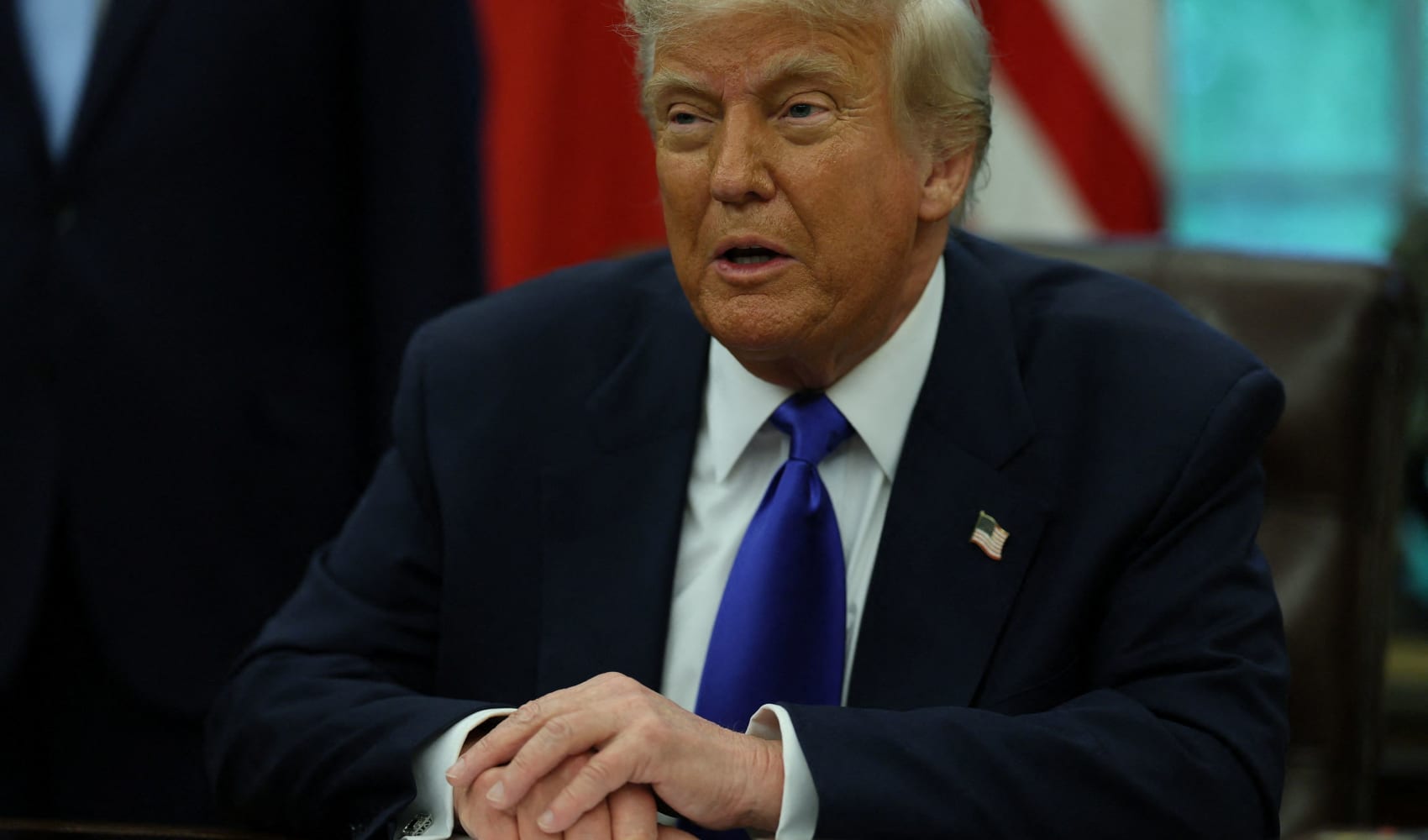Essential Drugs: Eli Lilly's Plan to Secure America
Eli Lilly to the Rescue? Addressing National Security Concerns Over Drug Tariffs
Introduction: The Looming Shadow of Drug Tariffs
What if the medicine you desperately needed suddenly became unaffordable or unavailable? Scary, right? That's the potential reality we're facing as pharmaceutical-specific tariffs loom large. The good news? Eli Lilly CEO Dave Ricks believes his company can step up and help "respond" to these national security concerns surrounding essential medicines. But what does this really mean, and how will it play out? Let's dive in.
The Trump Administration's Investigation: Section 232 Explained
The stage is set with the Trump administration's Section 232 investigation. This investigation probes how importing certain pharmaceuticals into the U.S. affects national security. Think of it like this: are we too reliant on other countries for the drugs we need to keep Americans healthy and safe? The results of this investigation could trigger tariffs on imported drugs, which could significantly impact costs and availability.
What is Section 232, Exactly?
Section 232 of the Trade Expansion Act of 1962 allows the President to impose tariffs on imports that threaten national security. It's a powerful tool, and using it for pharmaceuticals is a relatively new and potentially disruptive approach. It's like using a sledgehammer to crack a nut – hopefully, the unintended consequences are minimal.
Reshoring Manufacturing: A Viable Solution?
Dave Ricks suggests reshoring manufacturing capacity for older, essential medicines as “a valid thing.” This means bringing drug production back to the United States. Eli Lilly, he claims, is "happy to help the country if we’re in need." But is this a realistic and effective solution?
The Benefits of Reshoring
Reshoring offers several potential benefits, including:
- Reduced reliance on foreign suppliers
- Increased domestic job creation
- Greater control over drug quality and safety
- Improved supply chain resilience
It's like bringing your family closer – more security, more control, and more peace of mind.
The Challenges of Reshoring
However, reshoring isn't without its challenges:
- Higher production costs
- Significant investment in infrastructure
- Time-consuming regulatory hurdles
- Competition from cheaper foreign manufacturers
It's like renovating an old house – expensive, time-consuming, and full of surprises.
Eli Lilly's Role: What Can They Actually Do?
So, what concrete steps can Eli Lilly take to address these national security concerns? They could invest in domestic manufacturing facilities, partner with other pharmaceutical companies to increase production, and work with the government to streamline regulatory processes. It's a multifaceted approach that requires collaboration and commitment.
Investing in Domestic Manufacturing
Building new or expanding existing manufacturing facilities in the U.S. would create jobs and increase domestic drug production capacity. This is a significant investment that demonstrates a long-term commitment to American health and security. It's like planting a tree – it takes time and effort, but the benefits are long-lasting.
Partnerships and Collaboration
Working with other pharmaceutical companies and government agencies can help to pool resources and expertise. Collaboration is key to overcoming the challenges of reshoring and ensuring a stable supply of essential medicines. Think of it as a team effort – everyone working together towards a common goal.
The Impact on Consumers: Will Drug Prices Skyrocket?
The biggest concern for most people is the potential impact on drug prices. Tariffs and reshoring could lead to higher costs for essential medicines. But how can we mitigate these price increases and ensure that everyone has access to the drugs they need?
Negotiating Fair Prices
The government could negotiate fair prices with pharmaceutical companies to ensure that essential medicines remain affordable. This requires a delicate balance between incentivizing innovation and protecting consumers. It's like finding the sweet spot – balancing the needs of both parties.
Subsidies and Assistance Programs
Providing subsidies or assistance programs for low-income individuals can help to offset the costs of essential medicines. This ensures that everyone, regardless of their financial situation, has access to the healthcare they need. It's like providing a safety net – ensuring that no one falls through the cracks.
The Bigger Picture: Why National Security Matters in Healthcare
Why are we even talking about national security when it comes to pharmaceuticals? Because a healthy population is a strong population. A stable and secure supply of essential medicines is crucial for maintaining public health and ensuring national security. It's as simple as that.
A Healthy Population is a Strong Nation
A healthy population is more productive, more resilient, and better able to contribute to society. Ensuring access to essential medicines is an investment in the future of the nation. It's like building a strong foundation – the stronger the foundation, the stronger the building.
Resilience in Times of Crisis
A domestic pharmaceutical industry can provide resilience in times of crisis, such as pandemics or natural disasters. Having a reliable supply of essential medicines is crucial for responding to emergencies and protecting public health. It's like having a backup plan – you hope you never need it, but you're glad it's there.
The Future of Pharmaceuticals: Navigating Uncertainty
The future of the pharmaceutical industry is uncertain, with tariffs, reshoring, and other factors creating a complex and dynamic landscape. But by working together, we can navigate these challenges and ensure a healthy and secure future for all.
Innovation and Investment
Investing in research and development is crucial for developing new and innovative medicines. Continued innovation is essential for addressing emerging health challenges and improving patient outcomes. It's like fueling the engine – innovation drives progress.
Transparency and Accountability
Transparency and accountability are essential for building trust and ensuring that the pharmaceutical industry operates in the best interests of the public. Open communication and ethical practices are crucial for maintaining public confidence. It's like shining a light – transparency fosters trust.
Conclusion: A Call to Action
Eli Lilly's commitment to helping address national security concerns around essential drugs is a welcome development. The potential for tariffs on imported drugs is a serious issue, and reshoring manufacturing capacity is a viable, albeit challenging, solution. Ultimately, collaboration between pharmaceutical companies, government agencies, and policymakers is crucial for ensuring a stable, affordable, and secure supply of essential medicines for all Americans. It's time for action – let's work together to build a healthier and more secure future.
Frequently Asked Questions
1. What are pharmaceutical tariffs, and how could they affect me?
Pharmaceutical tariffs are taxes on imported drugs. If tariffs are imposed, drug prices could rise, making essential medicines more expensive and potentially less accessible.
2. Why is the government investigating the impact of drug imports on national security?
The government is concerned about potential over-reliance on foreign countries for essential medicines. This reliance could pose a risk to national security in times of crisis or conflict if supply chains are disrupted.
3. What does "reshoring" pharmaceutical manufacturing mean?
Reshoring means bringing pharmaceutical manufacturing back to the United States from other countries. This could create jobs, increase domestic production capacity, and improve supply chain security.
4. How can Eli Lilly help address national security concerns?
Eli Lilly can invest in domestic manufacturing facilities, partner with other companies to increase production, and work with the government to streamline regulatory processes. These efforts can help to reduce reliance on foreign suppliers and ensure a stable supply of essential medicines.
5. What can I do to advocate for affordable and accessible medications?
Contact your elected officials and let them know that you support policies that promote affordable and accessible medications. You can also support organizations that advocate for patient access to healthcare.

